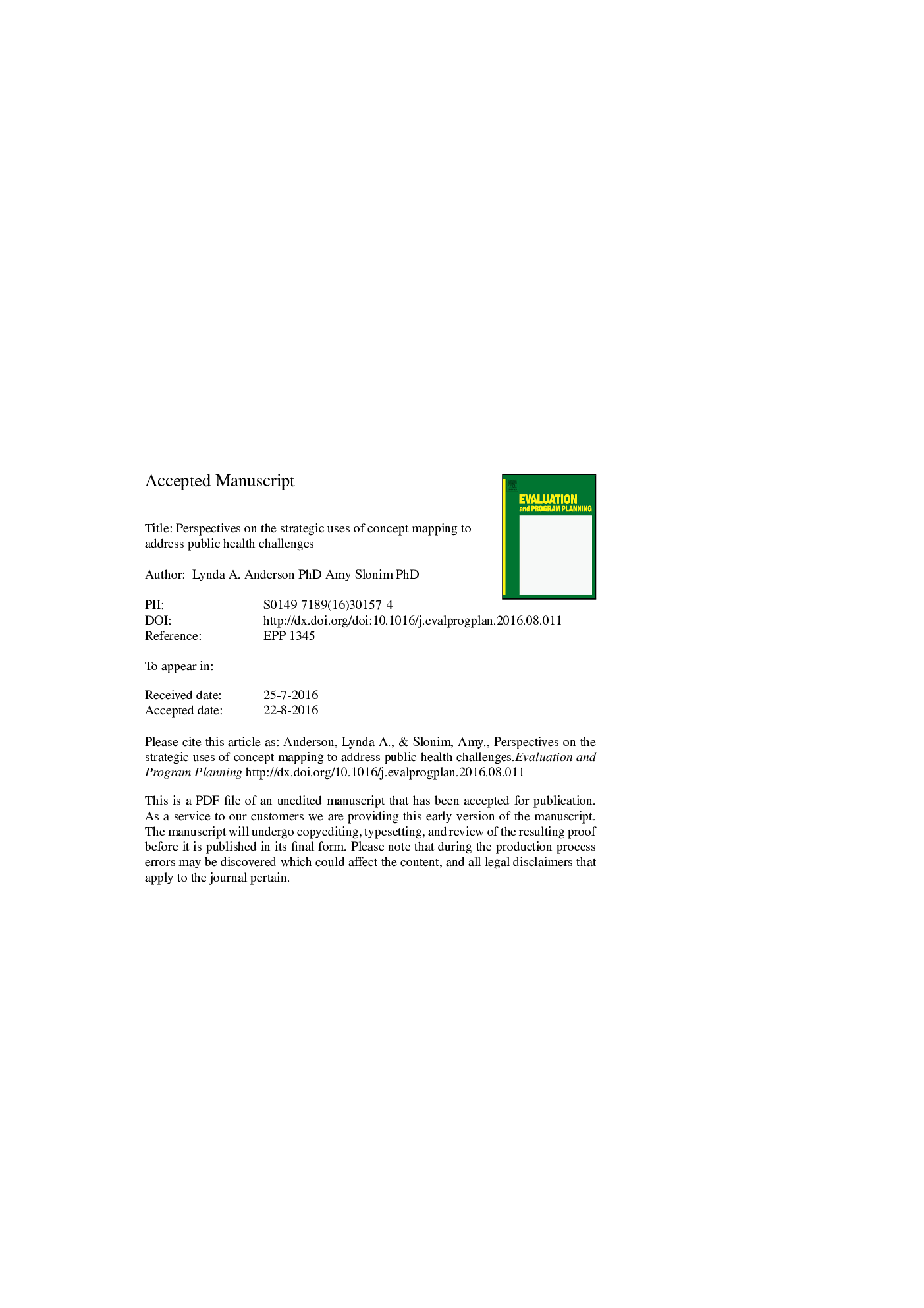| Article ID | Journal | Published Year | Pages | File Type |
|---|---|---|---|---|
| 4930959 | Evaluation and Program Planning | 2017 | 33 Pages |
Abstract
We examine the adaptation of approaches used to plan and implement the steps of concept mapping to meet specialized needs and requirements in several public health projects. Seven published concept mapping projects are detailed to document how each of the phases were modified to meet the specific aims of each project. Concept mapping was found to be a useful tool to complement public health roles such as assessment, program development, and priority setting. The phases of concept mapping allow for a blending of diverse perspectives, which is critical to public health efforts. The adaptability of concept mapping permits the use of multiple modalities such as the addition of face-to-face brainstorming; use of qualitative methods, including structured interviews; and review and use of published literature and guidelines. Another positive aspect of concept mapping for public health practice is its ability to identify program elements, provide a visual map of generated ideas and their relationships to one another, and assist in identifying priorities. Our reflections on the adaptability should help inform another generation in designing concept mapping projects and related products that may benefit from unique adaptations and the rapidly expanding social media technology and platforms.
Related Topics
Health Sciences
Medicine and Dentistry
Public Health and Health Policy
Authors
Lynda A. PhD, Amy PhD,
